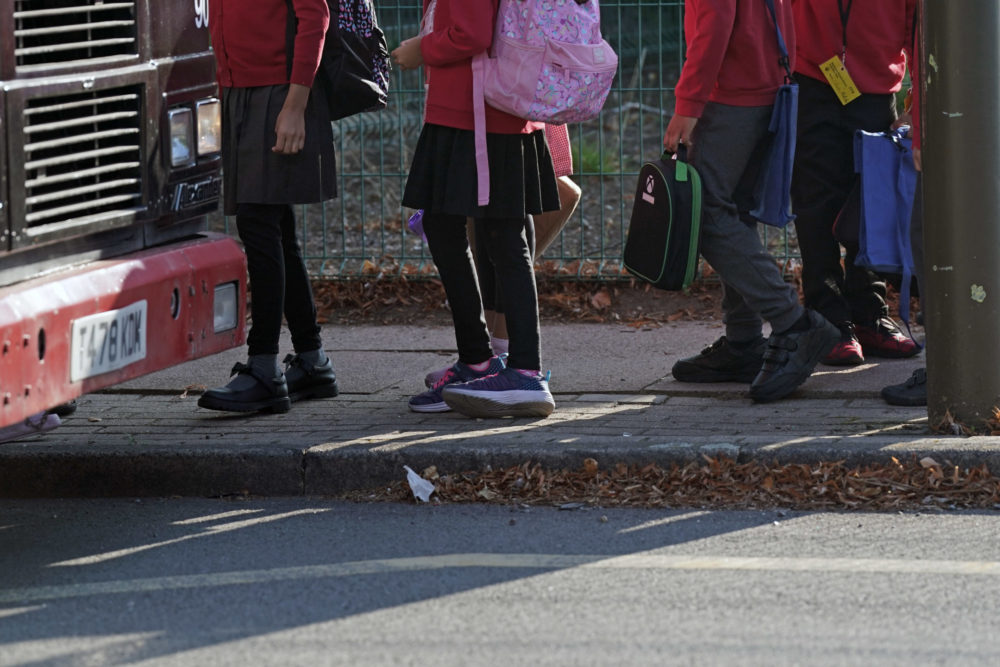Rethink on school transport cuts but some pupils still face six-mile round trips

Nicholas Thomas, local democracy reporter
Primary school children in Caerphilly have been excluded from planned cuts to free pupil transport.
Caerphilly County Borough Council’s cabinet members have agreed, following a public consultation, to pursue changes that will only affect secondary school-aged children.
Secondary pupils currently qualify for free transport if they live more than two miles from their school, but this could increase to three miles.
The proposals mean affected pupils may face up to six-mile round trip journeys on foot to attend lessons.
The council says this is in line with the Welsh Government’s rules on statutory transport provision.
Ballooned
The local authority argues its spending on school transport has ballooned from £6.4 million in 2015 to an estimated £12 million in 2024, and costs “are continuing to increase”.
Cllr Carol Andrews, the cabinet member for education, told a meeting of colleagues on Wednesday February 19 that the council’s current policy is “generous”.
She explained Caerphilly is one of only three local authorities in Wales still providing transport above the statutory minimum.
Senior transport officer Kelly Adams said spending on the service had increased “significantly” due to rising fuel prices, an industry-wide shortage of drivers, and the impact of inflation affecting all aspects of the sector.
Sue Richards, the council’s head of education planning, added the number of pupils with additional learning needs (ALN) had also risen, requiring more expensive transport options.
The council has confirmed ALN pupils will not be affected by any changes to Caerphilly’s school transport policy.
Consultation
Nearly 1,000 people took part in a public consultation on the initial proposals, and the vast majority said changes would directly impact them or their children.
The main area of concern for respondents was the additional distance and time it would take for children to walk to school.
More than 400 people said they would instead have to rely on a car.
At the cabinet meeting, Cllr Jamie Pritchard, the deputy leader, received his colleagues’ unanimous backing when he suggested tailoring the proposals to only include secondary-school pupils.
On the recommendation of a backbench scrutiny committee, the council cannot make any changes until a “safe route assessment” is completed for each walking route, however.
An “experienced” specialist will be paid an estimated £192,500 for this work, which is expected to conclude in July for a final decision on the proposed changes.
Cllr Sean Morgan, the council leader, said it was “very important we are not marking our own homework” when the assessments are carried out.
The council expects to save nearly £1.1 million if it makes the proposed cuts to secondary-school transport.
Support our Nation today
For the price of a cup of coffee a month you can help us create an independent, not-for-profit, national news service for the people of Wales, by the people of Wales.




